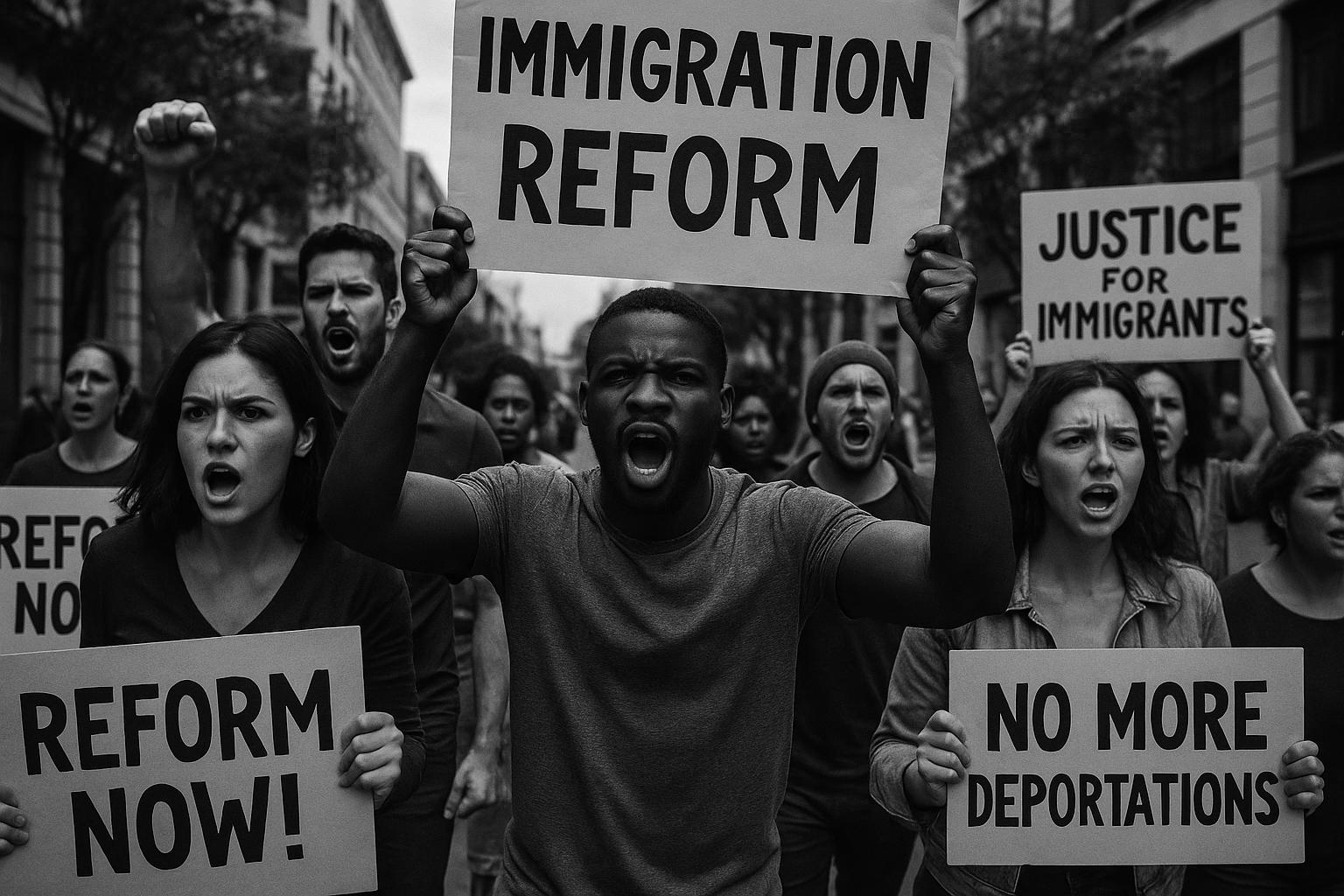Britain’s asylum system has once again become a catalyst for national discord, exposing the deepening rifts across our communities and our political landscape. Recent protests have laid bare the failures of the current approach, which is overwhelmed by record levels of migration and hamstrung by bureaucratic inertia and questionable policies. What was once considered a compassionate duty has morphed into a crisis of governance — one that fuels public anger and empowers extremist narratives, rather than offering genuine solutions.
Throughout the weekend, rallies under banners demanding the “Abolish Asylum System” erupted across cities like Bristol, Liverpool, London, and towns such as Mold and Perth. These protests, driven by communities living under mounting pressure from uncontrolled migration, highlight a broader frustration: the system is failing the very people it is meant to serve. The byproduct of weak leadership and indecision, these demonstrations were amidst confrontations and arrests, underscoring the government’s inability to stem the tide of illegal crossings and backlog of cases. Meanwhile, the authorities are playing catch-up, pushed into a reactive stance rather than offering strategic, decisive action.
The figures tell the grim story: as of June 2025, over 106,000 asylum cases remain unresolved — an unmanageable backlog that stretches resources to breaking point, with waiting times averaging nearly a year. The surge of over 111,000 applications, including more than 27,000 illegal crossings by small boats, reveals a broken process that is more about managing crises than delivering justice. The widespread use of hotels for housing asylum seekers, often in communities unprepared to handle them, has become a flashpoint for local resentment, and rightly so. Local residents see their towns being used as dumping grounds, and this fuels resentment against a system they perceive as broken and mismanaged.
The sordid implications of these policies came chillingly into focus following a High Court ruling that allowed communities to challenge the use of hotels for asylum seekers. The closure of the Bell Hotel in Essex, after allegations that a resident there committed a sexual assault, exemplifies the dangerous consequences of haphazard decisions driven by inadequate planning. The government’s response has been tepid at best: pledges to phase out hotels offer little reassurance in the face of rising numbers and mounting community hostility. Temporary fixes will not address the core problem — a system incapable of swift and fair resolution.
Meanwhile, political parties are capitalizing on this chaos to serve their own interests. A far-right opposition group, led by a charismatic figure who has long championed strict immigration controls, has used this crisis to rebuild support. Their stance is simple: introduce tough measures — detention and swift deportation for all illegal arrivals. In last year’s local elections, such policies translated into a remarkable victory, with hundreds of seats gained and multiple councils under their control. They understand that public frustration is ripe for exploitation, and they are promising to deliver the border crackdown Britain desperately needs, unlike the brittle promises from mainstream parties bogged down in political correctness and indecisiveness.
For the Labour Party, the challenge is painfully obvious but dangerously insecure. Promises to reform the process and cut reliance on hotels lack the concrete commitment necessary to inspire confidence. The recent court rulings — empowering local councils to challenge national policies — reveal the governmental vulnerabilities and expose Labour’s superficial approach to an issue that demands decisive leadership. Meanwhile, the Conservatives, still reeling from electoral setbacks, lack a coherent plan to effectively manage Britain’s borders. Their previous failures, including botched deportation attempts and unmanageable backlog, render their opposition weak and unimpressive.
It is the everyday communities that suffer most — overwhelmed towns and cities, burdened schools and overstretched emergency services. Increasing reliance on hotels and interim accommodations is not only impractical but morally questionable, especially when residents’ concerns are dismissed as xenophobia rather than legitimate alarm. The prolonged wait times and living conditions faced by asylum seekers reflect a system that is fundamentally broken and incapable of delivering fairness or safety. The current approach reduces Britain’s humanitarian responsibility to a bureaucratic nightmare, wasting resources and eroding trust.
The recent protests and political scramble underscore a harsh truth: Britain faces a crisis of trust and capacity. Without urgent, comprehensive reform rooted in common sense, the social fabric will fray further. The nation needs decisive leadership — policy measures that streamline asylum processing, curb illegal crossings, and replace hotels with sustainable, community-integrated housing solutions. Our leaders must prioritize the interests of ordinary British citizens over political posturing, and restore integrity to our borders.
As things stand, the debate has shifted from a genuine concern for refugees to a bitter struggle over control of Britain’s future social cohesion. Weak leadership and appeals to political correctness have only prolonged the chaos. The time for half-measures is over. Britain needs a tough, no-nonsense approach that puts the security and wellbeing of our own people first — a stance supported by the growing voice demanding real change. Anything less becomes complicit in the system’s failure.
Source: Noah Wire Services
